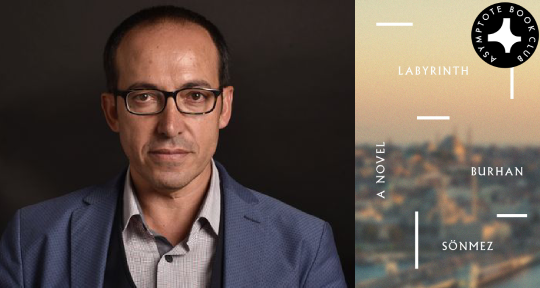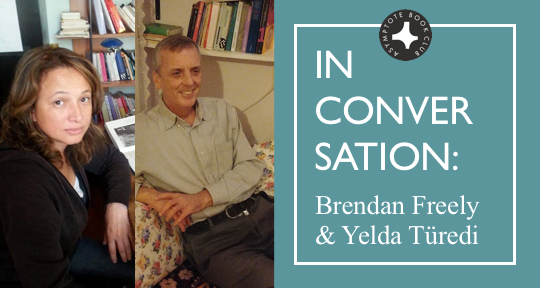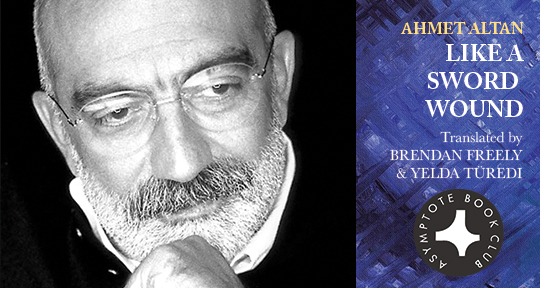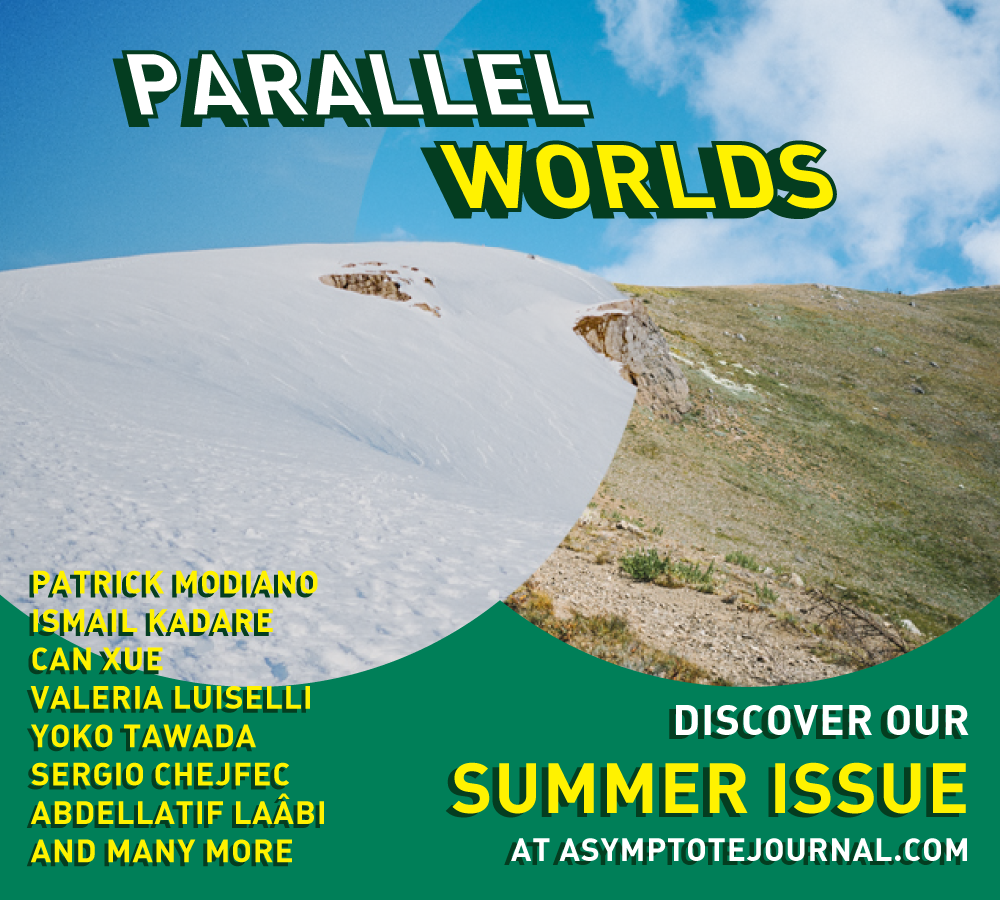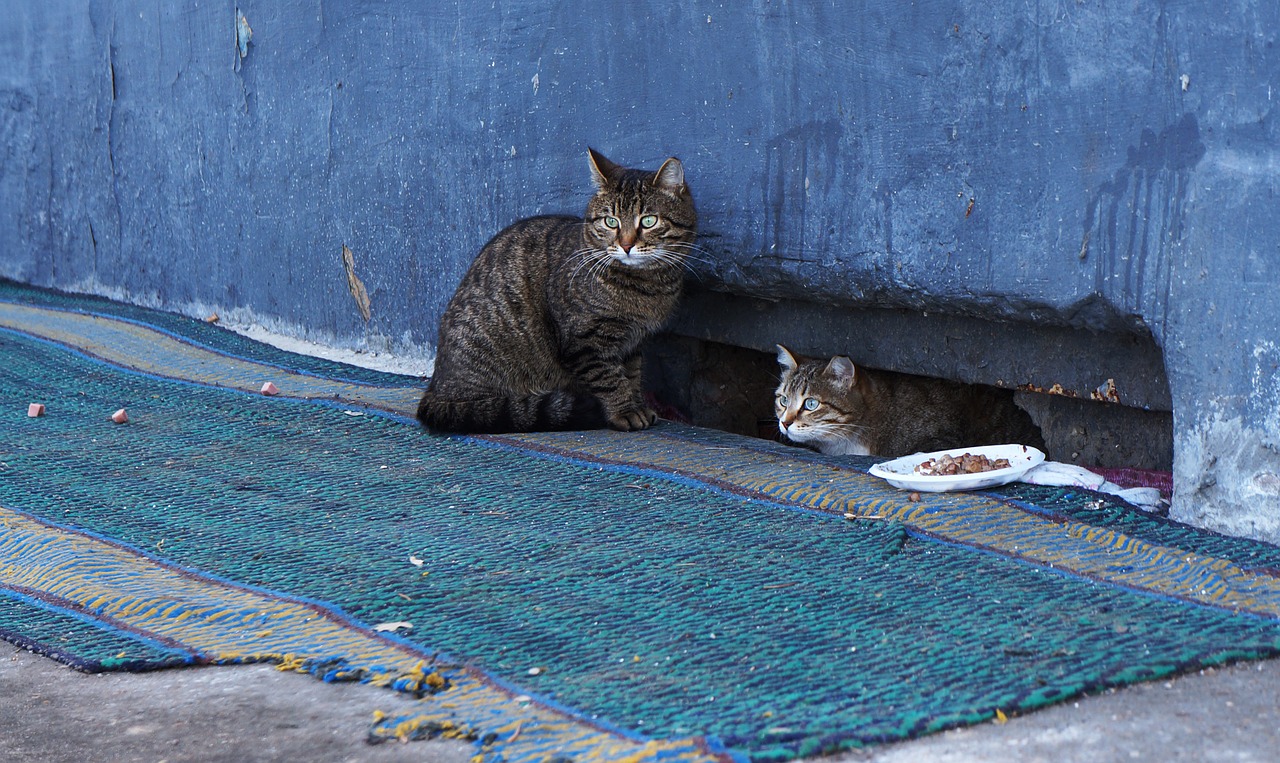For our penultimate Book Club selection of the year, we looked to the occupations of memory and philosophy to find Burhan Sönmez’s masterful novel, Labyrinth. Brought into English from Turkish with every bit of its poeticism intact by the author’s long-time partner in literature, Ümit Hussein, the work tellingly arrives at a time when we as readers are questioning the integrity of our collective memories more than ever. In the following interview, Asymptote’s Assistant Blog Editor Sarah Moore speaks to Hussein on her relationship with Sönmez, the necessity of knowing where a novel “comes from”, and the lonely profession of translation.
The Asymptote Book Club aspires to bring the best in translated fiction every month to readers in the US, the UK, and the EU. Today is the last day to sign up to give or receive our Book Club titles—starting from this month! Take advantage of our special Black Friday sale and get 10% off three-month subscriptions. Once you’re a member, be sure to join our online discussion group at our Facebook page!
Sarah Moore (SM): You’ve translated several other books by Burhan Sönmez. How has his work evolved over the years in terms of content or style? Can you point to some longstanding themes? What stood out to you about this particular novel?
Ümit Hussein (UH): Burhan and I first met when we were both starting out. I have translated all his novels to date, including his first, North—the only one yet to be published in English. I don’t want to misquote the number of books he told me he read in preparation for it, but I believe it was over a hundred. Because the novel was still in manuscript form when I translated it (it hadn’t yet found a Turkish publisher), he kept revising it. I must say, that’s something that hasn’t changed over time! He’s incredibly meticulous. Every word he writes has been carefully considered and rethought and rewritten. I know because I work very closely with my authors; I think it’s important to establish a rapport during the translation process, and consequently I’m one of those tiresome translators who is constantly in touch with questions and comments and requests for explanations.
While each of Burhan’s novels bears his unmistakeable stamp, they are all very different and have evolved over time. Istanbul Istanbul may be his most mature in terms of craftsmanship and poeticism, but my personal favourite is Sins and Innocents. Both revolve largely around storytelling, as does Burhan’s work at large. In Istanbul Istanbul, four prisoners sharing a tiny underground cell distract each other with stories. Similarly, half of Sins and Innocents is set in Burhan’s native village in Central Anatolia, and each chapter in the Anatolian half is devoted to the often dramatic story of a real life village character. These chapters could, if developed, comprise novels in themselves: there are tales of young girls being buried alive, a student mistakenly shot dead by his brother who is embroiled in a blood feud, a beautiful woman scarred for life when she is attacked by a she-bear maddened with grief after the death of her cubs. Burhan is a born storyteller, because he comes from a culture where the oral tradition is very prominent. READ MORE…


